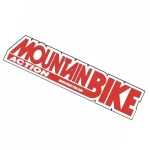Deity Launches New TMAC Pedals
The crew at Deity are proud to announce the official launch of the Tyler McCaul signature TMAC pedal. The largest Deity pedal to date that features one of the deepest concave profiles industry wide, the Deity TMAC pedal has been a labor of love for the rider owned company who have spent nearly 3 years perfecting what they confidently call “Your Dream Pedal”.
On a warpath, the crew at Deity have not been letting up this year. With numerous new product releases, the construction of their new Global headquarters, expanding their pro roster of riders, and more, the launch of the TMAC pedals has been one of the most anticipated Deity products since initial images leaked out at Sea Otter of this year. A true “signature” product, the TMAC was born from the collaboration between Deity and industry icon Tyler McCaul.
Known for his impeccable whips, beautiful style, epic lines at events like Rampage, and his ability to tie it all together with speed, the development of the TMAC pedal was patiently crafted with the goal to create the best pedal your foot will ever touch and to address issues and requests top tier riders have had for years. From slipped pedals and the lack of true concave profiles, the Deity TMAC pedals were born not only from the work of Deity and Tyler McCaul, but also the input from riders like Cameron Zink.
“The TMAC pedal has been quite a while in the making actually. The initial mold we created did not have the ideal profile and after a year of testing the first prototypes, Tyler liked the pedal, but we wanted him to love it. So, we scrapped the first prototype and started from scratch with a new mold that broke away from the standard profiles and body shapes that are common to this industry.” Eric Davies (Deity, Owner)
Deity started studying past rider footage from not only their riders, but also other riders in this industry. Their goal was to examine every possible pedal slip and missed pedal that they could. It was clear that the lack of back support on the pedal was reducing the purchase a foot could have and these millimeters were the difference between having your foot on the pedal and having it slip off after a trick or dabbed foot on a downhill run. A symmetrical pedal shape is not new, but with the heyday of thick pedals in the 90’s and early 2000’s, offset pedal profiles became the standard because of the foots need to engage onto the pedal quicker due to the incredibly thick profile pedals used to have. It may be hard to remember for some, but these pedals looked like bricks and were so high off the spindle.
Those days are long long gone and thinner profiled pedals benefit a lot less from being offset as the engagement is much quicker due to being closer to the spindle and the fact that the outer trailing edges are not as thick anymore. “We were initially worried about the effect a symmetrical pedal at a 90 degree right angle would have when the foot tried to stomp down and engage back on the platform. Would the foot shift forward or backward more? Would there be a delay on the engagement? To test this we made a weight driven machine that would apply downward force on the pedal when placed on a 90 degree plain. We could then measure the time it took for the foot to land flat and securely on the pedal and also, where the foot ended up being in relation to the axle when it rotated horizontally. We could then move the foot location forward or backwards to then test stability when the foot is not in the ideal position. The results were as we thought they would be. The added surface area behind the spindle allowed the concave profile to really shine. The foot confidently had space to connect to the pedal without worry of lack of foot support or needing to be in the perfect location.” Eric Davies (Deity, Owner)
Overthought? Maybe, but Deity does not have any room to make mistakes, to release inferior product, to expect their riders to risk themselves on something they do not think is the best in the business, or to let their customers be the testers. The reason they mention the above process is not to kill you with technical mumbo jumbo, but to show just one small example of the time Deity took to invest their energy as a team into the product development with this pedal. It is easy to say that a pedal is just a pedal, but to feel the difference…you really need to ride a set of the TMACs.












